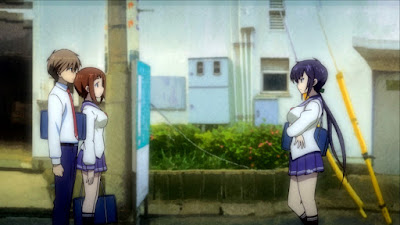What happened to SquareEnix?
Japanese Role Playing Games have been available to buy for consoles since the original Phantasy Star was released on the Sega Master System. The genre rode the wave of popularity during the release of the PlayStation console. The company that benefited the most from the tremendous popularity was Square. During this time period, they were able to release classic and innovative franchises (Xenogears, Parasite Eve, Threads of Fate, Vagrant Story) and create amazing iterations of classic franchises (Final Fantasy VII, VIII, IX, and Chrono Cross). The PlayStation 2 saw a flood of equally good and interesting quality games from Square. With the publication of the new generation of consoles, the production of games has been severely limited on both the home consoles and on the handheld consoles. This culminated in this E3 where one of the higher ups in SquareEnix has lamented the lack of representation from its Japanese Development. What went wrong with SquareEnix and how can the company go back on track?
What went wrong?
Staff Defections – Square had had staff issues since the company’s golden age, the three big examples are the staff defections of Tetsuya Taknashi, Hironobu Sakaguchi, and Yasumi Matsuno.
The first big defection was with Tetsuya Takanashi and the Xenogears team, who left the company after the completion of Xenogears. The game was plagued by development problems and it took much longer than expected to release the game. Frustrated in releasing a game they felt was unfinished, they left Square to create MonolithSoft. The company would eventually create the Baiten Kaitos and Xenosaga franchise.
The next big one was the departure of Hironobu Sakaguchi, the father of the Final Fantasy franchise. He was the brilliant mind behind the creation of Final Fantasy, Vagrant Story, Kingdom Hearts, and Parasite Eve. His games were critical and financial successes for Square, so he got promoted within the organization numerous times. He felt that Square would inexorably move to other media, so he started work on the Final Fantasy Movie. The movie was a huge catastrophe and it left the organization near the brink of destruction. He was demoted and was eventually pushed out of the organization. He started the company Mistwalker that would produce some very well-known RPG’s.
The last famous well-known defection was the departure of Yasumi Matsuno. Considered one of the rising stars in Square, he created Final Fantasy Tactics, Vagrant Story, and led Final Fantasy XII. He was overworked and eventually left production of Final Fantasy XII. His departure left Final Fantasy XII in an enormous development mess and it strongly affected the morale of the development within SquareEnix.
Emergence of Handheld Consoles – The emergence of handheld consoles as a driving force for game sales in Japan highlights an emergent cultural divide between east and west. The Nintendo Game Boy brand was a ubiquitous brand, with the release of the Nintendo DS and the Sony PSP, the market of handheld consoles exploded. Japanese development embraced the handheld consoles because they were a huge software sales driver and because of the cheaper development costs. The West, while being a chief purchaser of handheld consoles, has not embraced the handheld consoles as the primary gaming platform. SquareEnix rode the wave of Handheld Console development, the problem was that the handheld consoles got quick and dirty ports with little original content. For every quality game like The World Ends with You, Final Fantasy Dissidia, or Kingdom Hearts: Birth by Sleep, there would be quick and dirty ports like Final Fantasy I and II. The erratic game quality of these shoddy ports diminished the brand name all over the world. This split between Japan and the West on the primary type of console has left SquareEnix in a challenging situation.
Difficulty transitioning to high-definition consoles – This generational transition has left SquareEnix reeling, and we are still feeling the effects on this transition. The first issue was that there is no dominant console to develop exclusively on. In the past, SquareEnix was exclusive to one console. By being exclusive to one console, they can create the best game possible while taking advantage of the console’s competencies. Sony’s terrible pricing of the PS3 opened the way for the XBOX 360 to gain a large chunk of Sony’s PlayStation 2 market. The split of the PS2 user base meant that SquareEnix had to learn two different hardware configurations with development, which is something they have never done before. With this generation of consoles was also a precipitous learning curve in development with the introduction of programmable shaders on the GPU (remember that most Japanese developers did not develop on the XBOX, which had Vertex and Pixel Shaders). The increase in console power lead to an astronomical increase in game development times, which has led to a decrease in the amount of games released and it also forced game developers to be more risk averse. There are far less experimental games this generation than there was in the past because of the high cost of development with the high risk of failure.
Management Issues – SquareEnix has management issues; this has been made more evident in this generation of consoles than it had in the past. Good management means that the staff is properly motivated, proper people get promoted, projects get released on time, and development costs do not exceed budgets, SquareEnix has been doing the complete opposite of this for quite a while. As evidenced with the principal point of staff defections, SquareEnix has been bleeding very talented teams of people. I only scratched the surface of the incredible talent who has left the company. The pool of talent who left SquareEnix are the people behind games released during the organization’s “golden age.” The people developing the games are the reason why SquareEnix games were so good, and many of them are gone. One of the big issues in the company is that there is a sense of cronyism for advancements of management as opposed to promoting based on merit. This crony promotion of management led to many staff departures along with having people in positions they should not be at. The company has been tarnished by project delays. Final Fantasy XII was released 3 years later than they arranged, on top of that the game felt rushed with its corridor-style oubliettes and its lack of explorable towns. Final Fantasy Type 0 has had a development of close to four years (as of May 2011) and it has yet to be released on the PSP. It is on a console that is extremely easy to develop for. A better managed project should be able to release 4 games in the period that Final Fantasy Type 0 has been in development. The long development time also means that it costs more money to make the game. SquareEnix’s management issues are one of the biggest reasons behind SquareEnix’s development issues.
How can they get back on track?
Fix Management Issues – I believe that a large chunk of SquareEnix’s problems is due to its management problems. They need to completely restructure management to ensure that staff defection rates decrease, the proper people get promoted, and projects get released on time. They should reduce staff defection rates by allowing the developers to have more freedom to create what they want. Doing this will allow the developers to create games that interest them and it will improve staff morale. The best way to improve staff morale is to promote the proper people in positions of power. They should stop this crony system of management promotion, instead promoting people who have potential to be great leaders. The last is to get projects released on time. Set aggressive and realistic times for game development and find ways to improve development of games so that the development teams can reach these goals. SquareEnix should not announce games 5 years before they are developed. They should announce them at the very most 1 year before it comes out to the general public. Part of the huge backlash for Final Fantasy XIII was that people waited a very long time for the game to come out, and the anticipation has led people to have unrealistic expectations that would never be satiated.
Have Dedicated Development for Home and Handheld consoles – Instead of being a jack of all trades, master of none, they should split development teams into dedicated development houses to make quality games on home consoles and handheld consoles. SquareEnix has made many handheld console games, but the majority of them are poor ports and they are still treated as the stepchild of the development team. There should be a couple of development teams on handheld consoles to make quality games and release them on a regular basis. With SquareEnix knowing more about shaders while having polished game engines for home consoles; it should be much easier to pump out more games.
Ultimately, the organization will be successful when they would recognize their problems and do their best to rectify these problems.










Comments